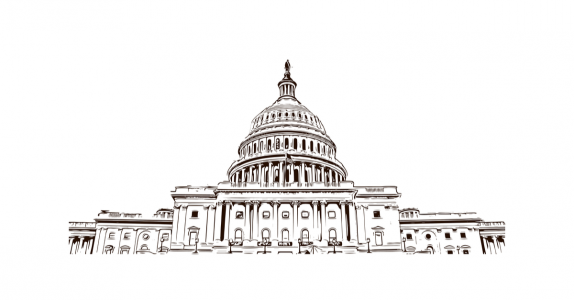#MEAction has sent a letter to the Congressional House Subcommittee on Health (Energy & Commerce Committee), following their recent congressional hearing on Long COVID.
Our letter urges Congress to hold the National Institutes of Health (NIH) accountable for expediting treatments to people with ME/CFS and Long COVID. To make this happen, we urge Congress to hold the NIH accountable for prioritizing and accelerating ME/CFS research as part of its $1.15 billion Long COVID (PASC) research initiative, including expediting clinical treatment trials of repurposed drugs used in treating ME/CFS.
(We also wrote the NIH to inform them of our request for additional oversight from Congress.)
It is because NIH has not effectively accelerated ME/CFS research, that many people with Long COVID have been left without research-informed treatments or adequate care. Despite this, there are interventions available today that could reduce the disease burden of Long COVID.
Clinician experts in treating ME/CFS and other post-viral illnesses have pioneered the repurposing of drugs for these illnesses, several of which have already been used for Long COVID. We know that intervening early in the course of these illnesses is the best opportunity to reduce symptom severity, improve quality of life, and potentially support patient recovery.
The NIH needs to act urgently and aggressively to leverage both research and clinical learnings about ME/CFS in order to accelerate delivery of treatments for Long COVID patients – and everyone suffering from ME/CFS. But, NIH Director Francis Collins’ testimony at the hearing – and the recently updated NIH-Wide Strategic Plan for COVID-19 Research – show significant gaps in addressing these issues.
Research into ME/CFS and other post-viral illnesses has advanced our understanding of the pathologies that follow infections. This critical knowledge base can and should be used to accelerate Long COVID solutions. Here is what we urge Congress to hold NIH accountable to do:
- Integrate ME/CFS into NIH PASC Strategy: NIH needs to prioritize funding for Long COVID studies that: 1) Build on prior ME/CFS and related chronic illness research, 2) Include ME/CFS researchers, clinicians, and patients in PASC strategic planning, 3) Utilize post-infectious ME/CFS patients in comparison cohorts, and 4) Accurately identify and track ME/CFS symptoms and diagnosis in Long COVID cohorts over appropriate study durations.
- Expedite Long COVID Clinical Treatment Trials of Repurposed Drugs Used in ME/CFS: The subset of Long COVID patients—those whose long-term symptoms overlap with ME/CFS and are not the result of hospitalization or detectable organ damage—deserve urgent clinical treatment trials. They must not be forced to wait years for the elucidation of the disease mechanisms, subtypes, and biomarkers.
Decades of Broken Promises
The ME community knows far too well what it is like to suffer decades of neglect and broken promises from our federal agencies. Dr. Francis Collins has often urged “hope” for ME/CFS without translating that into real action. We cannot let the same pattern continue for the many Long COVID patients who are now developing ME. We need to insist that federal agencies put ME/CFS at the forefront of the Long COVID research agenda – and don’t repeat their history of neglect.
#MEAction has been fighting for health equity at the NIH for years, and we remain vigilant to make sure people with ME are not forgotten. Please join us and support our work.
NOTE 1: In case you missed it, be sure to check out our other letter to the heads of the ME/CFS programs at NIH and CDC outlining how they are failing people with ME by not creating an outcomes-oriented action plan for urgently meeting our community’s needs.
NOTE 2: Not everyone experiencing Long COVID symptoms will fit ME/CFS diagnostic criteria or benefit from ME/CFS treatments. In our communication to Congress and NIH we specified that we were referring to the subset of Long COVID patients whose long-term symptoms overlap with ME/CFS and are not the result of hospitalization or detectable organ damage.






 ) and a message about #MillionsMissing with your own networks. Desktop: Download by right clicking on the image or clicking on the download icon in the bottom right corner of the image. Mobile:
) and a message about #MillionsMissing with your own networks. Desktop: Download by right clicking on the image or clicking on the download icon in the bottom right corner of the image. Mobile:
5 thoughts on “#MEAction urges Congress to hold NIH accountable”
Link to letter not working…
Hmmn. All the links in the article are working for me. Here are the full URLs:
1) Congress letter: http://www.meaction.net/wp-content/uploads/2021/05/Final-Congress-Subcommittee-Letter-051421.pdf
2) NIH letter: http://www.meaction.net/wp-content/uploads/2021/05/Email-to-NIH-Francis-Collins-RE-Long-COVID-Hearing.pdf
3) Prior letter to NIH/CDC: http://www.meaction.net/wp-content/uploads/2021/03/MEAction-Letter-to-NIH-CDC.pdf
I tried to donate ($20.00) but I wass unable to because , at least that particular button seems to be broken.
Charles, sorry for your technical difficulties! The link should have taken you to our #MillionsMissing 2021 fundraiser page which shows you how much we’ve raised to our goal and from which you can then donate.
You can donate by going directly to our online donation form.
If you have any other issues you can email donations@meaction.net for help.
Thank you for your support!
Was a response received from the Energy and Commerce Committee and the heads of MECFS programs at NIH and CDC?
Comments are closed.